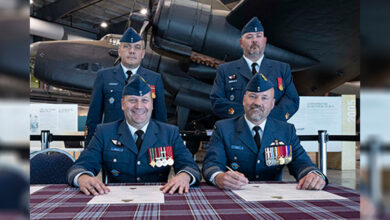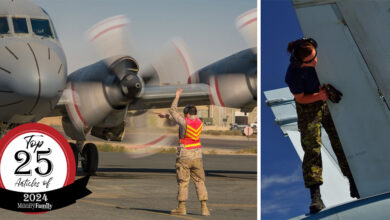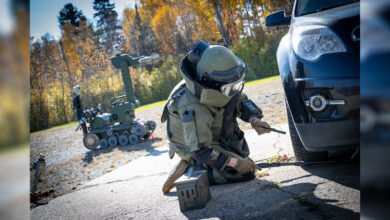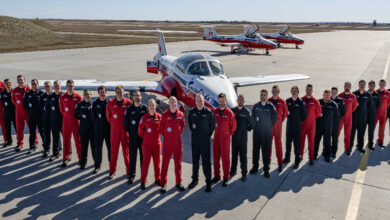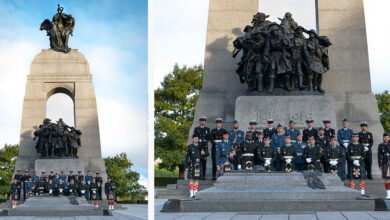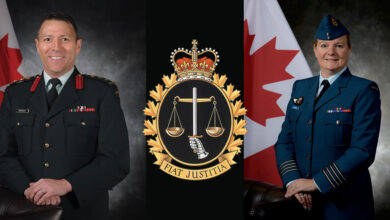Duty CallsUncategorized
Flight Safety Final Report released regarding November 2016 CF-18 crash
The final report for the fatal CF-18 accident on November 28, 2016, which occurred near 4 Wing Cold Lake, Alberta, was released today by the Department of National Defence’s Airworthiness Investigative Authority.
The document states the findings regarding the cause of the accident, in addition to recommendations and measures to prevent similar accidents in the future.
Captain Thomas McQueen tragically lost his life during a training exercise on the Cold Lake Weapons Range.
According to the report, the purpose of the training exercise was to simulate level deliveries of two Mark 83 bombs followed by two laser-guided training rounds, simulating laser-guided bombs, within the Cold Lake Air Weapons Range.
The evidence does not support mechanical failure within the aircraft, bird strike or incapacitation on Capt. McQueen’s part. No radio calls were made while he attempted to turn the aircraft, failed to eject and died when the aircraft struck the ground in a descending left turn.
According to the report, it appeared Capt. McQueen was capable of controlling the aircraft but failed to properly monitor the flight path while navigating the low-level environment.
A recovery may have been attempted, but with not enough altitude, he was unable to safely recover the aircraft. Evidence suggests Capt. McQueen may have been distracted while attempting to spot his weapon impact.
McQueen, originally from Fisherville, Ont., followed in his grandfather’s footsteps and joined the Air Force in 2006, shortly, thereafter, becoming a pilot student. He was to marry his fiancée, whom he had met in Cold Lake. Their wedding was planned to take place in December 2016, three weeks after the accident.
To read the full report click here.
Top photo caption: (Courtesy of Department of Defence)




